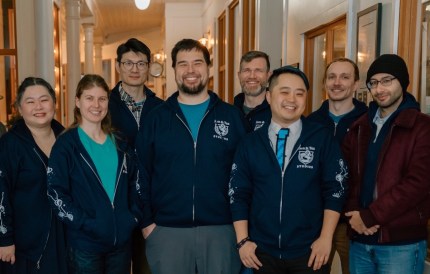CRV, the early-stage venture firm that is this year celebrating its 50th anniversary, has just closed its newest fund with $600 million in capital commitments. The firm asserts that it garnered the pledges entirely during the pandemic, saying it kicked off its fundraising efforts in April.
Just as notably, says general partner Jon Auerbach — who joined the firm’s Boston office 13 years ago and two years ago headed to the Bay Area, where CRV has two offices — the fund is the “exact size of our last fund, because we wanted to make a statement. We want to send the message that discipline wins.”
We spent some time on the phone with Auerbach yesterday to learn more about the fund, which, like previous funds, will focus on seed and Series A-stage startups but will differ slightly in that longtime general partner Devdutt Yellurkar will not be making active investments from it.
TC: Check sizes have been growing in recent years, which is the reason competitors often give for raising larger funds. Why not raise more?
JA: We could have closed on more, but we want to remain small and focused and we’re making a bet that there will be a return to some level of normalcy. We also think that given the team and the opportunity we’re chasing — early-stage software — this fund size gives us the flexibility to scale up when we want to but also maintain [the ability to see an impact from smaller checks].
TC: What percentage of your deals are seed and Series A versus slightly later-stage?
JA: Almost all is seed and A. Our biggest check in our last fund was just over $20 million, into Postman, a company in the API space that started in India with which our partner Devdutt built a relationship over four years.
Our average check size across the life of an investment is $13 million.
TC: Postman just closed on a big round last month.
JA: Yes. One of the things we’re most proud of is that three breakout companies have raised money [since COVID-19 took hold in the U.S.]. [Cloud-based collaboration software maker] Airtable raised a big round, Postman and DoorDash. What impacts COVID has economically is a mystery going forward, but you’re seeing a flight to quality, with some massive beneficiaries that have managed to command incredible attention.
TC: What did you see in DoorDash early on?
JA: We led the seed round and we made two bets there. One was that [co-founder and CEO] Tony [Xu] and his team were aiming to build a last-mile software logistics company, whether delivering food or something else. The second was on the societal shift globally toward working couples who weren’t as interested in cooking but cared a lot about food.
TC: There are questions about whether DoorDash’s funding has gotten ahead of the company, especially given that it’s gaining so much traction right now during circumstances that we all hope will change.
JA: Of course, COVID has acted as an accelerant, but the life of a founder is one of immense risk, and their job, mainly with their product, is to reduce that risk. Capital is another way to do it, but it cuts both ways; it’s oftentimes not a good thing. What we love about this portfolio of disciplined, visionary people is they have contingency planning built into their models, along with a vision of how to change the world.
TC: Is DoorDash’s business model sustainable in a world where more workers are becoming classified as employees instead of contract workers?
JA: When people see the economic model behind DoorDash, they’ll be surprised. For example, its many deals with [quick service restaurants] around the country are brilliant because customer acquisition costs tend to drag down companies, but when you walk into a store in Wichita [Kansas], you see that it says to use the DoorDash app. That reduces acquisition costs.
TC: Has CRV sold any of its stake in DoorDash? Also, how many rounds beyond the seed round did CRV join?
JA: We haven’t sold [any of our shares] and we invested in a couple more rounds. It’s not our pure mandate to keep going [as a company continues raising later rounds of capital].
TC: You’re largely investing at the seed stage; do you have any concerns about how startups that didn’t have trouble landing that smaller check raise that next round if we’re all still mostly stuck at home?
JA: Seed-stage companies will figure out how to adapt, and so will investors. Twenty years ago, when I got into the business, the standard playbook was you backed a company, then you went to the next layer of talent at that company and backed those people. It was a family tree approach. If you told me that years later, investors would be backing so many first-time founders without domain expertise, I would have told you that you’re crazy. But the average age of enterprise software founders has dropped dramatically. Look at [Airtable founder] Howie [Liu], and he’s not an outlier. It’s because software has become much more approachable, and the experiences that used to guide you are now oftentimes hindrances to clean, fresh thinking.
TC: Speaking of Airtable, there is so much interest now in no-code, low-code startups. How are you thinking about these?
JA: Oh, we love it. We have another company, Iterable, a marketing tech platform, that falls in to the same movement. It used to be that you needed to tap into engineering talent to design and measure campaigns, but with what the team has built over there, you can now arm marketers with the tech they need to design customized campaigns that can work at scale.
TC: You’ve had some exits in recent months: the sale of 5G software maker Affirmed Networks to Microsoft for a reported $1.35 billion in cash, and the sale of another software company, CloudGenix to Palo Alto for a reported $420 million.
JA: At CRV, we’re not so focused on what’s happening at any particular moment in time. Sometimes serendipitously, good things happen; sometimes it takes longer. Thankfully, we don’t have the pressure of a new fund that has to show LPs that it knows what it’s doing.
TC: As an established firm, I wonder how you are thinking about diversity. I know last summer that you brought on Anna Khan, a former investor at Bessemer, as a general partner.
JA: We understand that this is a young person’s game that requires incredible hustle, networking and open eyes and we continue to focus on the next generation. We have multiple generations at the firm because we do believe that diversity of opinion makes us better investors. Five of our 15 investors are women, our ages range from 26 to 60, and we represent six countries, including, Turkey, Greece, Pakistan and India.
TC: Anyone transitioning out of the firm with this new fund?
JA: We have a flat and equal structure, so some things are done per fund and some are done at fund level. Devdutt won’t be making investments in the new fund, but he continues to be involved in all his portfolio companies — and there are 11 of these — and he continues to be involved in firm management and decision-making. [Our job as more senior members] is to make room for the next generation.
TC: Before I let you go, I’m wondering what you think of this potential exodus from San Francisco, especially given that you re-located your family to be closer to the action here.
JA: Innovation globally, over hundreds of years, has thrived when there are clusters of talent. There’s a lot of scientific research on clustering, so I think it’s clear it will continue. The onus is on places like the city of San Francisco to ensure that entrepreneurs will feel safe doing what it is that they do and love here in the city. If that doesn’t happen because rents are too high or they aren’t coming back [from working wherever they are remotely], the clusters will look elsewhere.
TC: Do you think remote work will stick?
JA: Great ideas can exist everywhere in the world, but when you’re an entrepreneur who wants to make incredible change from nothing, you’ve tended to be around people who think like you and the vast majority of those people have reason to come back.
We’re social beings and we like to be together, and the greatest ideas come from the merging of available capital and cross-sector expertise, and that will continue globally in one way or another. It doesn’t mean certain disciplines can’t be shifted to remote. I’d put coding at the top of the list. But companies aren’t just built on programming.































Comment